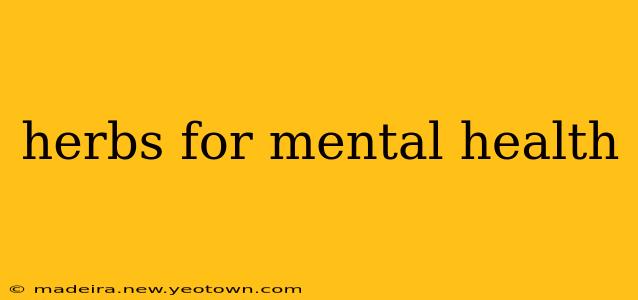For centuries, humans have turned to the natural world for solace and healing, and the realm of herbal remedies offers a fascinating exploration into supporting mental well-being. While not a replacement for professional medical care, certain herbs have shown promise in easing symptoms associated with various mental health challenges. This journey through nature's pharmacy will explore some of these herbs, their potential benefits, and the crucial importance of consulting with healthcare professionals before incorporating them into your routine.
It's a story as old as time: a quiet evening, the scent of chamomile tea filling the air, a gentle sense of calm washing over you. This isn't just a scene from a cozy movie; it represents the deep-rooted connection between humans and plants, a connection that continues to hold relevance in our modern, often stressful lives. Let's delve into some of the herbs that have earned a place in the conversation surrounding mental health support.
What are some common herbs used for mental health?
This is a frequently asked question, and the answer is multifaceted. Many herbs boast a history of traditional use for emotional well-being, but scientific research is still ongoing to fully understand their mechanisms and efficacy. Some commonly explored herbs include:
-
Chamomile: Known for its soothing properties, chamomile tea is often used to promote relaxation and reduce anxiety. Its calming effect is attributed to compounds like apigenin, which binds to specific receptors in the brain.
-
Lavender: Another popular choice for relaxation, lavender's fragrant oil is often used in aromatherapy to alleviate stress and improve sleep quality. Studies suggest it may help reduce anxiety and improve mood.
-
St. John's Wort: This herb has a long history of use as an antidepressant, and some research suggests it may be effective for mild to moderate depression. However, it's crucial to note that St. John's Wort can interact with many medications, so consulting a doctor is paramount before using it.
-
Ashwagandha: This adaptogen is gaining popularity for its ability to help the body cope with stress. Studies indicate it may reduce cortisol levels (the stress hormone) and improve symptoms of anxiety and depression.
-
Rhodiola: Another adaptogen, Rhodiola is traditionally used to combat fatigue and improve mood. Research suggests it may enhance cognitive function and reduce symptoms of stress and depression.
How do herbs work for mental health?
The mechanisms by which these herbs influence mental health are complex and often not fully understood. However, several factors are at play:
-
Neurotransmitter modulation: Some herbs may affect neurotransmitters, the chemical messengers in the brain that regulate mood, sleep, and other functions. For instance, St. John's Wort is believed to influence serotonin levels.
-
Hormonal balance: Adaptogens like Ashwagandha and Rhodiola may help regulate hormone levels, reducing the impact of stress hormones like cortisol.
-
Antioxidant and anti-inflammatory effects: Some herbs possess antioxidant and anti-inflammatory properties that may protect the brain from damage and reduce inflammation, which has been linked to mental health conditions.
Are there any side effects of using herbs for mental health?
While generally considered safe when used appropriately, herbs can have side effects. These can range from mild digestive upset to more serious interactions with other medications. It's crucial to:
-
Consult with a healthcare professional: Always discuss your intention to use herbal remedies with your doctor or a qualified herbalist, particularly if you are taking other medications or have pre-existing health conditions.
-
Start with low doses: Begin with a small dose to assess tolerance and gradually increase as needed.
-
Be aware of potential interactions: Certain herbs can interact negatively with prescription medications, so careful monitoring is essential.
What are the best herbs for anxiety?
Chamomile and lavender are frequently cited for their calming effects and potential to alleviate anxiety symptoms. Ashwagandha, with its adaptogenic properties, also shows promise in managing stress and anxiety. Remember that individual responses vary, and what works for one person might not work for another.
What are the best herbs for depression?
St. John's Wort has been traditionally used to treat mild to moderate depression, although more research is needed to fully understand its efficacy and safety. Ashwagandha and Rhodiola are also explored for their potential to improve mood and alleviate depressive symptoms. It's vital to consult with a mental health professional for diagnosis and treatment of depression.
This journey into the world of herbs for mental health highlights the potential benefits of these natural remedies. However, it is absolutely critical to remember that they are not a replacement for professional medical care. Always consult with a doctor or qualified healthcare professional before using herbal remedies, especially if you are taking other medications or have any underlying health concerns. Your well-being is paramount, and informed decisions are key to achieving optimal mental health.

